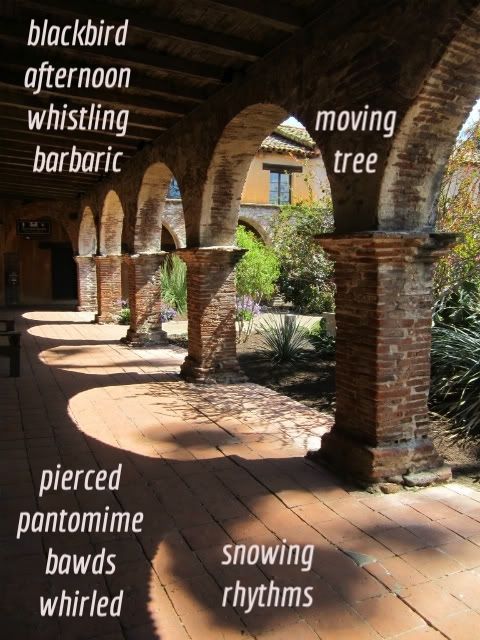From Wikipedia, the free encyclopedia
The
Little Flock hymnbook is in common use amongst
Exclusive Brethren
in various editions which nevertheless derive from a common source. It
exists in almost as many variations and editions as there are distinct
groups of Exclusive Brethren.
Early history
In 1838 (and again 1840) the Central Tract Depot published
George Wigram's
Hymns for the Poor of the Flock. This was followed in 1856 by his
Hymns and Spiritual Songs for the Little Flock
which gathered together hymns from diverse collections used among
Brethren and on which all subsequent versions are based. This was
revised in 1881 by
John Nelson Darby,
an edition which is still in print, published by Bible Truth Publishers
of Addison, Illinois, USA and available from Chapter Two, etc.
William Kelly revised the hymn book in 1894 and Thomas Henry Reynolds produced his edition in 1903.
Raven/Taylor editions
Amongst
Raven–Taylor Brethren,
every new doctrinal development has been reflected in renewed activity
in hymn composition in English and other European languages. Doctrinal
shifts were often followed by marked re-editing of the hymns themselves
to bring them into line with current ministry which often necessitated
the production of a new edition. The main editions are 1903, 1932, 1951,
1962, and 1973, of which there is a Taylor/Symington (1973 Amendment)
edition and a separate Kingston Bible Trust (1973 Re-Selection) edition.
From the 1940s, foreign language editions were gradually brought into
line with English editions so that Brethren could, where possible, sing
together the same hymns in the same metre. The 1962 hymnbook thus
appears in varying quality in 10 or more languages. The Swedish editions
in particular have a long tradition of translating English hymns,
especially Gospel songs for outreach. The English editions themselves
have included translations from Swedish, French, Spanish and German.
Taylor/Symington/Hales Brethren use their English hymnbook universally
regardless of the local language.
A new edition,
Hymns and Spiritual Songs for the Flock of God,
was published in New Zealand in 2001 by R.D. Church and E.J. Forrest
through the Joseph Bywater Trust. This collection is based on the 1951
edition and gathers together many hymns from all the pre-existing
collections, restoring hymns to their original wording where possible
and adding some new compositions.
Kelly/Lowe/Glanton editions
The KLG grouping have had two major hymn books since William Kelly's
Hymns Selected and Revised in 1894
edition. Following the reunion of 'Kelly' (1894 users) and 'Lowe'
Brethren (1881 users) in 1926, the 1928 edition was compiled by
William John Hocking and is still in use by a few 'Kelly' and
Open Brethren
meetings. The 1978 edition followed the 1974 reunion with both
'Glanton' Brethren (1903 users) and 'Grant' Brethren (1881 users) and is
used by these "reunited" Brethren. This latter book has drawn more
widely from hymns in common use but does not contain hymns addressing
the Holy Spirit in line with traditional Darbyite teaching. Foreign
language editions have developed and continued in their own distinctive
traditions.
Gospel hymnbooks
Gospel hymnbooks have been produced by most branches of Exclusive Brethren. The
Little Flock
editions have always contained a selection of Gospel Hymns but both
Raven/Taylor and KLG wings of the movement have from time to time used
separate (sometimes privately printed) collections of Gospel Hymns in
the gospel and outreach meetings. Chapter Two have re-published
The Evangelists' Hymnal, edited by Walter Thomas Prideaux Wolston. This book is used by some Glanton and some Open Brethren assemblies.
Tune books
Little Flock Tune Books have been published in 1883, 1904, 1932,
1954, 1965, and 1979. Charles Theodore Lambert's edition of 1932
published both words and tunes with an appendix "Containing a few hymns
suitable for the Christian Household". It is still published in Tonic
Sol-Fa by the Symington/Hales Depot. The other Tune Books had tunes
only, listed in metrical order. The KLG 1978 hymn book and the Gospel
Hymn Book were both published with a music edition. All editions (but
especially the 1965 edition) have drawn on Exclusive Brethren
tunewriters and musicians to produce collections of a high calibre both
in terms of musical editing and in the quality of the compositions
themselves. Composers of note include Thomas Willey, T. Collins, Miss
Marian La Thangue, Miss S.M. Walker, Charles Leflaive, C.T. Lambert,
Benjamin Christiansen, R.A. Evershed,
Peter S. Pope, Eric Carrén, John F. Harvey, and Gordon Millar.
Historical and critical apparatus
An Access database of all first lines and metres of hymns with limited biographical and bibliographical material is held at the
Christian Brethren Archive in the
John Rylands University Library, Manchester.
Gordon Rainbow has collated some
historical material
on the Little Flock Hymnbook. This contains links to all the prefaces
to the early hymnbooks and from 1903 follows the Raven/Taylor line of
hymnbooks. Various accounts of new editions of the hymnbook were
published and these are given in full.
An account of all the major developments in the tradition was published in Frank Wallace's
The History of the Little Flock Hymnbook (it does maintain an anti-Taylor bias). Also by Frank Wallace,
Spiritual Songsters contains biographies of many hymnwriters found in the Little Flock tradition and is published by
Chapter Two.
Adrian Roach wrote a History of the 1881 edition containing much
biographical information on the hymnwriters. It is published by
Bible Truth Publishers.
A text of the 1978 Kelly/Lowe/Glanton edition is available
online where there is a large amount of biographical material and a first line index of the 1881 "Darby" edition









